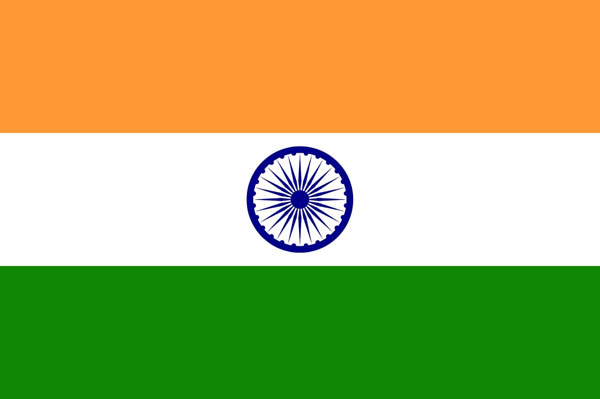Chapter II
1. Election petitions
- No election of a councilor shall be called in question except by an election petition presented to the court of the district judge of Delhi within fifteen days from the date of the publication of the result of the election under section 14.
- An election petition calling in question any election may be presented under any of the ground s specified in section 17 by any candidate at such election, by any elector of the ward concerned or by an councilor.
- A petitioner shall join as respondents to his petition all the candidates at the election.
- An election petition –
a. Shall contain a concise statement of the material facts on which the petitioner relies.
b. Shall, with sufficient particulars, set forth the ground or grounds on which the election is called in question.
c. Shall be signed by the petitioner and verified in the manner laid down in the Code of Civil Procedure, 1908 95 of 1908), for the verification of pleadings.
Notes
In an election petition for getting an election declared void and for a further declaration that the petitioner was duly elected , the returned candidate is not entitled to plead prove that the petitioner himself was guilty of corrupt practice and was therefore not entitled to be declared as elected, Such a Plea raised y a returned candidate which is in the nature of recrimination as contemplated by Section 97of the Representation of the People Act, 1951 is not available under any of the provisions of Delhi Municipal Corporation Act,. Sudershan Bhalla vs. Shri R.N. Aggarwal District Judge, Delhi. ILR (1975) 2. Del. 359: Item No. 236 DHCYD 1975.
2. Relief that may be claimed by the petitioner
- A petitioner may claim-
1. Declaration that the election of all or any of the returned candidates is void, and
2. In addition there to, a further declaration that he himself or any other candidate has been duly elected.
- The expression “returned candidate” means a candidate whose name has been published in the Official Gazette under section 14.
3. Grounds for declaring elections to be void
1. Subject to the provision of sub section.
2. If the court of the district judge is of opinion.
- That on the date of his election a returned candidates was not qualified or was disqualified, to be chosen as councilor.
- That any corrupt practice has been committed by a returned candidate or his agent or by any other person with the consent of a returned candidate or his agents, or
- That any nomination paper has been improperly rejected,or
- That the result of the election , in so far as it concerns a returned candidate, has been materially affected.
- By the improper acceptance of any nomination, or
- By any corrupt practice committed in the interest of the returned candidate by a person other than that candidate or his agent or a person acting with the consent of such candidate or agent, or
- By the improper acceptance or refusal of any vote or reception of any vote which is void, or
- By the non-compliance with the provisions of this Act or of any rules or orders made thereunder.
3. If in the opinion of the court, a returned candidate has been guilty by an agent of any corrupt practice, but the court is satisfied-
- That no such practive was committed at the election by the candidate, and every such corrupt practice was committed contrary to the orders, and without the consent, of the candidate.
- That the candidate took all reasonable means for preventing the commission of corrupt practice at the election.
- That in all other respects the election was free from any corrupt practice on the part of the candidate or any of his agents.
Then, the court may decide that the election of the returned candidate is not valid.
Notes
In the consideration of the question whether a presiding officer is acting as a person designate or Court, the important points to be investigated are the source of his authority, the nature of proceedings and the action taken therein. A persona designate, as the phrase implies, is an individual as distinguished form a member of a class. The Low confers power on the District Judge to enquire into and dispose of an election petition and he functions as Court and not as persona designate. Municipal Corporation vs. Ramachandra Laxman – AIR 1960 Bom. 58.
When jurisdiction is conferred on a civil court or on a judge who usually preside over them, it is always a question of some nicety to determine whether the matte is so heard and determined by a court of law or by a persona designate. It is well established that even where a special jurisdiction is conferred on a Judge, it does not necessarily follow that the jurisdiction is conferred on the Civil Court over which he usually happens to preside. The judge under the Municipalities Act is not a civil court but an ad-hoc tribuna created by Act for the purpose of deciding election disputes under it Janrdan vs. Hira Lal- 1957 M.P.L.J. 170 (Nag).
4. Procedure to be followed by the district judge
The procedure provided in the Code of Civil Procedure, 1908 (5 of 1908), in regard to suits shall be followed by the court of the district judge as far as it can be made applicable, in the trial and disposal of an election petition under this Act.
5. Decision of the District judge
1. At the conclusion of the trial of an election petition, the court of the district judge shall make an order-
- Dismissing the election petition; or
- Declaring the election of all or any of the returned candidates to be void; or
- Declaring the election of all or any of the returned candidates to be void and the petitioner any other candidate to have been duly elected.
2. If any person who has filed an election petition, has in addition to calling in question the election of the candidate, claimed declaration that he himself or any other candidate has been duly elected and the court or the district judge is of
- That in fact the petitioner or such other candidate received a majority of the valid votes, or
- That but for the votes obtained by the returned candidate the petitioner or such other candidate would have obtained a majority of the valid votes.
The court shall, after declaring the election of the returned candidate to be void , declare the petitioner or such other candidates, as the case may be, to have been duly elected.
6. Procedure in case of equality of votes
If during the trial of an election petition it appears that there is an equality of votes between any candidates at the election and that the addition of a vote would entitle any of those candidates to be declared elected, then, the court of the district judge shall decide between them by lot and proceeded as if the one on whom the lot falls had received an additional vote.
7. Finality of decision
- An order of the court of the district judge on an election petition shall be final and conclusive.
- An election of a councilor not called in question in accordance with foregoing provisions shall be deemed to be a good and valid election.


 State Election Commission
State Election Commission 


